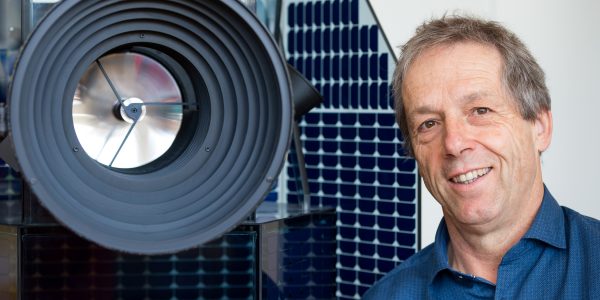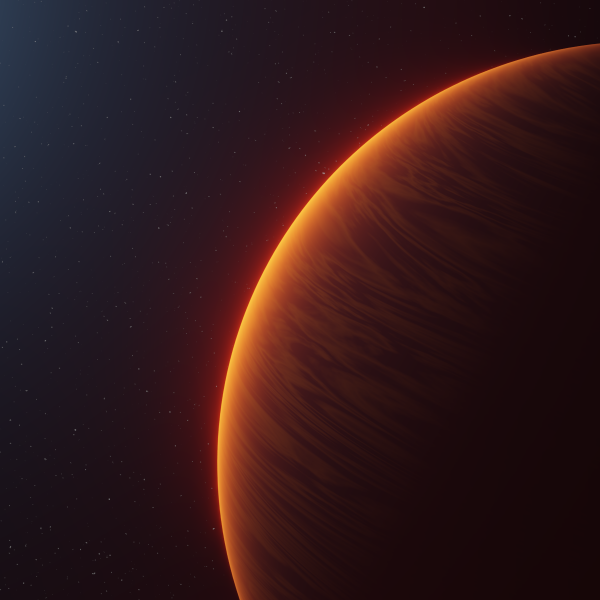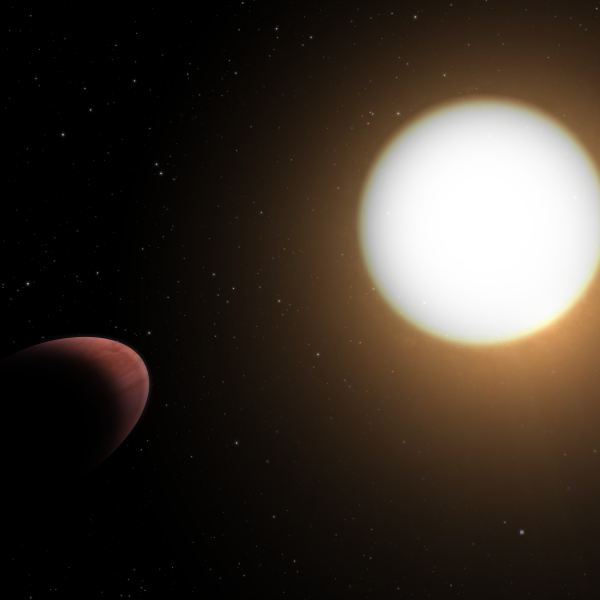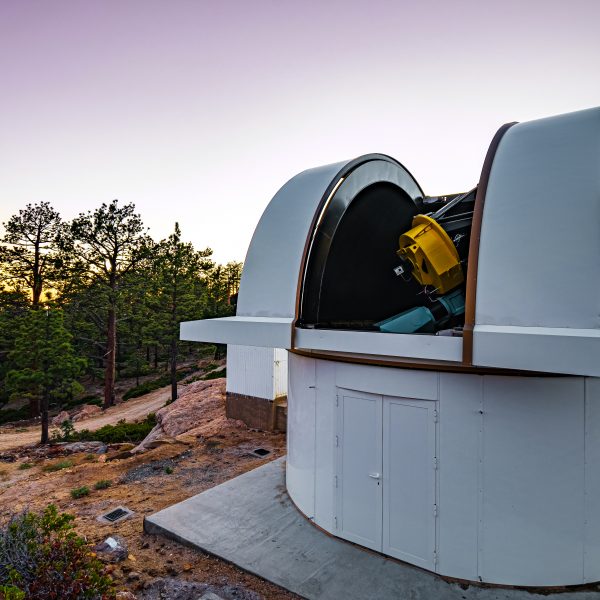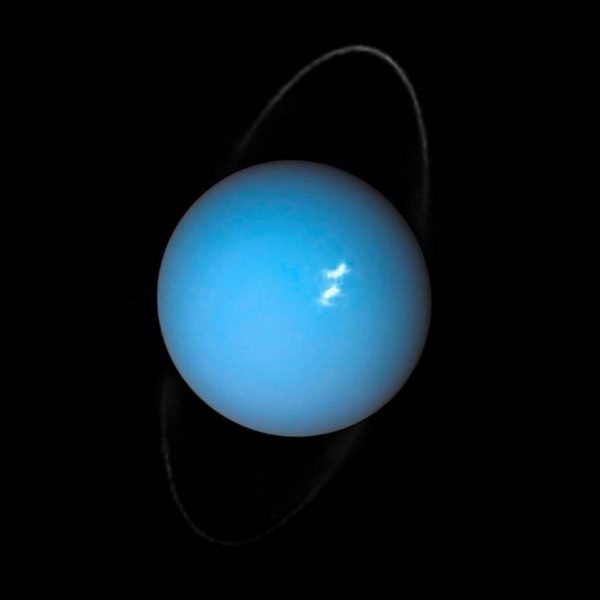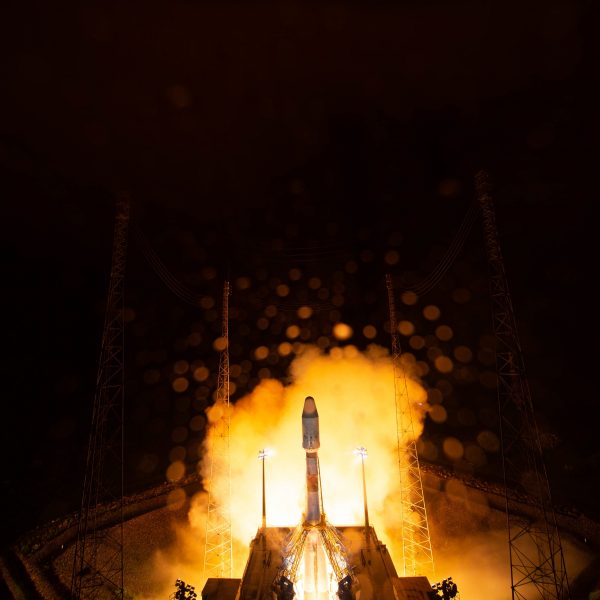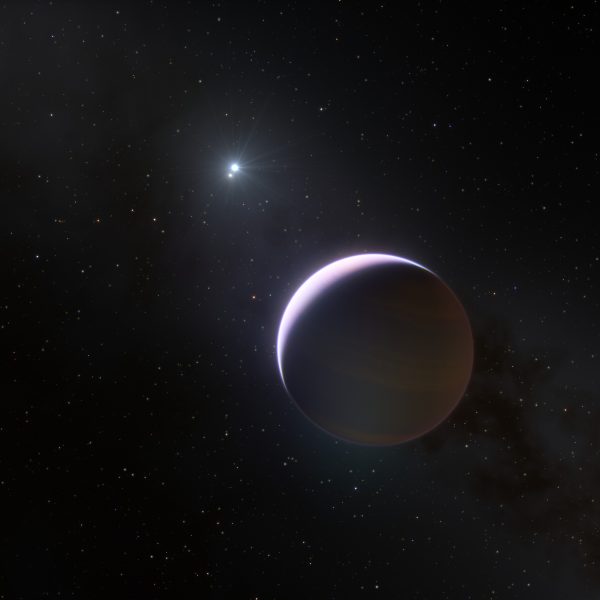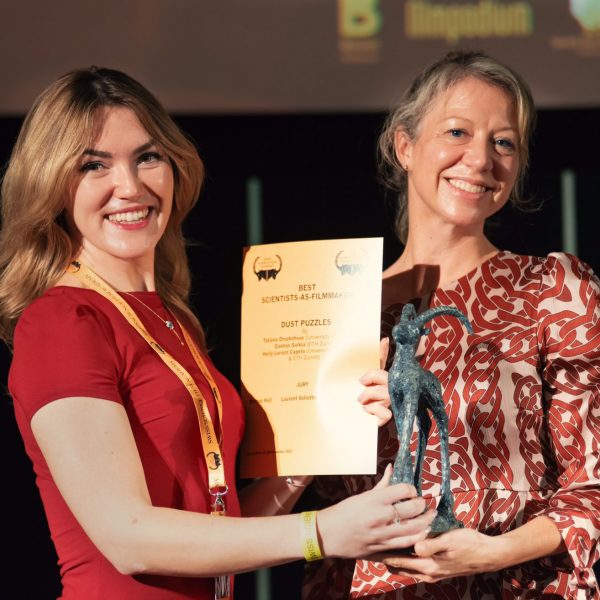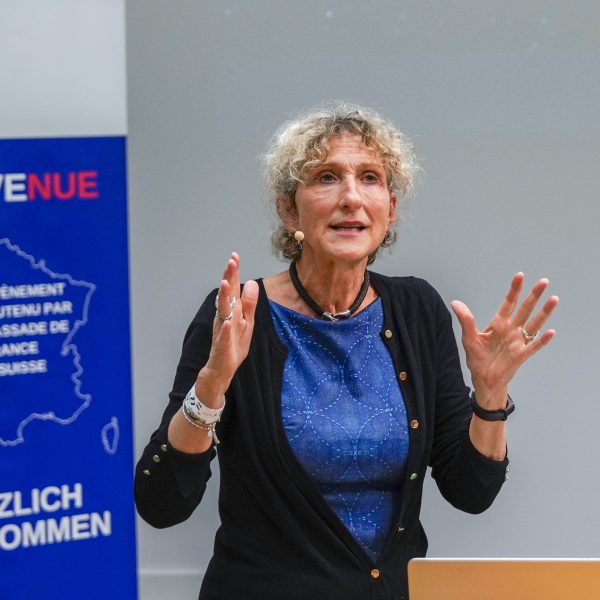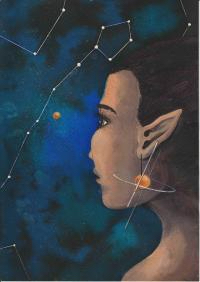News
Editorial
As we seem to slowly emerge from all the restrictive measures associated with the COVID-19 pandemic, we rediscover not only our offices but also the coffee-breaks and the smiles on the faces of our colleagues. Everyone is eager to dive again at full speed together with her/his colleagues into a busy but exciting research life. […]
Continue ReadingExtreme exoplanet has a complex and exotic atmosphere
An international team including researchers from the University of Bern and the University of Geneva as well as the National Centre of Competence in Research (NCCR) PlanetS analyzed the atmosphere of one of the most extreme known planets in great detail. The results from this hot, Jupiter-like planet that was first characterized with the help […]
Continue ReadingCHEOPS reveals a rugby ball-shaped exoplanet
With the help of the CHEOPS space telescope, an international team including researchers from the Universities of Bern and Geneva as well as the National Centre of Competence in Research (NCCR) PlanetS, was able to detect the deformation of an exoplanet for the first time. Due to strong tidal forces, the appearance of the planet […]
Continue ReadingSAINT-EX discovers eccentric exoplanet
Led by the University of Bern, an international research team has discovered a sub-Neptune exoplanet orbiting a red dwarf star. The discovery was also made thanks to observations performed by the SAINT-EX observatory in Mexico. SAINT-EX is run by a consortium including the Center for Space and Habitability (CSH) at the University of Bern and […]
Continue ReadingHow did the peculiar moons of Uranus form?
The peculiar characteristics of Uranus’ moons have been a topic of debate in astronomy for decades. Making use of state-of-the-art supercomputing and interdisciplinary expertise, researchers of the University of Zurich (UZH), who are part of the National Centre of Competence in Research (NCCR) PlanetS, propose a detailed answer in a new study. There is one […]
Continue ReadingTwo-year launch anniversary of CHEOPS
After two years in orbit, the CHEOPS space telescope has exceeded expectations. By reliably revealing details of some of the most fascinating exoplanets, it has quickly become a key instrument for astronomers in Europe and has led to fruitful collaborations throughout the continent. CHEOPS is a joint mission by the European Space Agency (ESA) and […]
Continue ReadingA planet beyond the realm of possibility
An international team of researchers with participation of the National Centre of Competence in Research (NCCR) PlanetS, ETH Zurich and the University of Zurich has succeeded in capturing an image of a very special planet. No known planet orbits a hotter or more massive star system. Some astronomers even considered it impossible for planets to […]
Continue Reading“Dust puzzles” wins Global Science Film Festival
All of us are made from stardust. But how were the first small space bodies formed out of this dust? The film “Dust puzzles” by NCCR PlanetS researcher Tatjana Drozhzhova takes a closer look at this question from the perspective of Dave (portrayed by Eashan Saikia of ETH Zurich). Rushing to the examination, Dave asks […]
Continue ReadingThe planetary sciences and the French-Swiss cooperation under the spotlight.
The French-Swiss scientific cooperation was under the spotlight at the University of Bern, during an event organised Wednesday 3rd of November 2021 in collaboration with the French Embassy in Switzerland and Lichtenstein. Professor Magali Deleuil from the Laboratoire d’Astrophysique de Marseille (LAM) was the special guest of this evening entitled “Looking for distant planets.” “We […]
Continue ReadingThe upside-down orbits of a multi-planetary system
Astronomers led by the UNIGE and members of NCCR PlanetS have discovered exoplanets that orbit in planes at 90 degrees from each other. When planets form, they usually continue their orbital evolution in the equatorial plane of their star. However, an international team, led by astronomers from the University of Geneva (UNIGE), Switzerland, has discovered […]
Continue Reading
